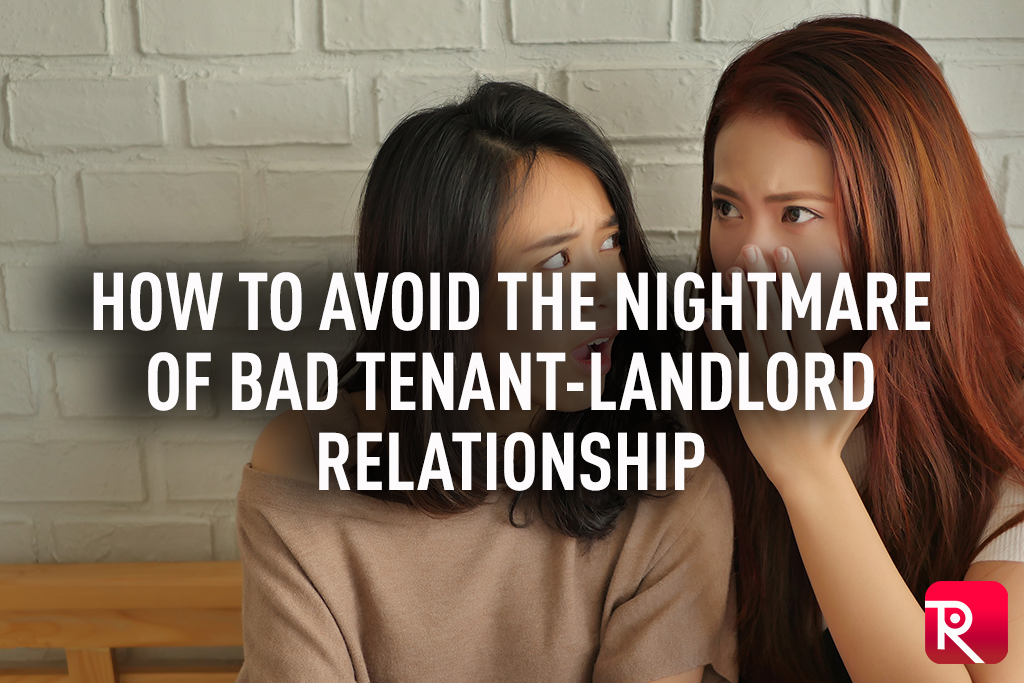
A harmonious tenant-landlord relationship is the foundation of a successful and stress-free rental experience.
Unfortunately, nightmare scenarios between tenants and landlords can occur, leading to disputes, legal battles, and a host of headaches for both parties. To prevent such situations and foster a positive rental experience, it is essential for both tenants and landlords to take proactive steps and communicate openly. In this article, we explore some common bad tenant-landlord scenarios and provide valuable tips on how to avoid them.
Communication Breakdowns
One of the most common reasons for tenant-landlord disputes is communication breakdowns. Misunderstandings, delayed responses, and lack of clarity can lead to frustration and animosity.
Effective communication is key. Establish clear channels of communication from the beginning. Set expectations regarding response times and preferred modes of communication. Both parties should be prompt and respectful in their interactions. Good communication can prevent small misunderstandings from escalating into larger issues.
Rent Payment Delays or Defaults
Late or missed rent payments can lead to significant financial strain for landlords and jeopardize the tenant’s security in the property.
To avoid rent payment issues, landlords should clearly outline rent payment deadlines and methods in the lease agreement. Tenants, on the other hand, should prioritize timely payments and communicate in advance if any issues arise. Open dialogue about financial matters can help avoid misunderstandings and provide an opportunity to find solutions together.
Property Maintenance Neglect
Neglecting property maintenance can lead to deteriorating living conditions, dissatisfaction, and potential legal disputes.
To prevent property maintenance problems, landlords must conduct regular maintenance and promptly address repair requests. Tenants should promptly report any issues to the landlord or property management to ensure a well-maintained living space. By addressing maintenance concerns promptly, both parties can avoid bigger problems down the road and foster a sense of trust and responsibility.
Breach of Lease Terms
When tenants violate lease terms, such as unauthorized subletting, keeping pets without permission, or excessive noise, tensions can arise between them and the landlord.
Clear and comprehensive lease agreements are vital to prevent lease term breaches. Landlords should outline all rules and restrictions clearly in the lease. Tenants should thoroughly review the lease before signing and seek clarifications if needed, ensuring full compliance with the terms. When everyone is on the same page from the start, it reduces the chances of disputes later on.
Invasion of Privacy
Invasive behaviour, such as unannounced visits by landlords or tenant refusal to allow essential inspections, can lead to trust issues and legal problems.
Respecting each other’s privacy rights is crucial. Landlords should provide proper notice before entering the property, except in emergencies. Tenants should cooperate with essential inspections or repairs for the benefit of both parties. Maintaining privacy and respecting boundaries fosters a sense of security and trust in the tenant-landlord relationship.
Security Deposit Disputes
Security deposit disputes often arise when landlords withhold a portion of the deposit for alleged damages or unpaid rent.
To avoid security deposit disputes, both parties should conduct a thorough move-in inspection together and document the property’s condition. Similarly, a move-out inspection should be conducted to assess any damages. Both parties should agree on any deductions, and disputes should be resolved amicably. Transparency and documentation can prevent misunderstandings and protect the rights of both tenants and landlords.
Unprofessional Conduct
Rude or unprofessional behavior from either party can escalate tensions and damage the relationship.
Maintain professionalism and treat each other with respect. Disagreements should be discussed calmly, and attempts to resolve issues should be made with a level-headed approach. A respectful and professional demeanor sets a positive tone for the tenant-landlord relationship and encourages constructive problem-solving.
Conclusion
The nightmare of having a bad tenant-landlord relationship can lead to a host of problems, souring the rental experience for both parties involved. By prioritizing open communication, adhering to lease terms, respecting privacy, and addressing maintenance promptly, tenants and landlords can create a positive and mutually beneficial rental relationship. Clear expectations, regular communication, and a focus on maintaining the property’s condition will foster a harmonious and stress-free experience for all involved.
One effective way to avoid many of the potential pitfalls in a tenant-landlord relationship is by engaging a property manager. Property managers act as intermediaries, handling the day-to-day operations of the rental property and ensuring that both parties’ needs and concerns are addressed.
Property managers are skilled in communication and conflict resolution, which can help prevent misunderstandings and disputes. They can enforce the lease terms, handle rent collection, and promptly address maintenance issues, taking the burden off both tenants and landlords.
Additionally, property managers are well-versed in local rental laws and regulations, ensuring that the property complies with all legal requirements. This knowledge can help prevent legal disputes and potential financial liabilities.
By hiring a property manager, both landlords and tenants can enjoy a more streamlined and professional rental experience. Property managers can provide peace of mind, knowing that the property is being well-maintained and that any issues will be promptly and efficiently handled.
In conclusion, while a positive tenant-landlord relationship is crucial, engaging a property manager can be a valuable investment in creating a stress-free and successful rental experience. With clear communication, mutual respect, and the assistance of a property manager, both tenants and landlords can enjoy a more harmonious and enjoyable renting journey.
